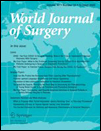Integration and Sustainability of Electronic Surgical Logbooks in Sub-Saharan Africa
Abstract
Background
Countries in Sub-Saharan Africa lack adequate surgical workforces to achieve safe and affordable care for their populations. The Global Surgery movement highlights the urgent need to address this situation. Interventions include not only financial, material and infrastructural support, but also collaborative information flow to support surgical training. In 2015, an electronic logbook was launched for surgical trainees across Sub-Saharan Africa.
Objectives
To assess the integration and context sustainability of surgical e-logbooks in Sub-Saharan Africa.
Methods
In January 2019, a survey analysis of surgical trainees was employed using quantitative and qualitative methods. Participants (active trainees and recent fellows) completed an anonymous internet-based questionnaire evaluating end-user feedback, perceptions and self-reported compliance. Multi-point Likert Scale measures and free-text thematic analysis were used.
Results
358 (68.19%) eligible individuals across 21 Sub-Saharan countries and seven surgical specialties voluntarily participated. The e-resource demonstrated integration into local curricula with the majority of users maintaining activity and reporting moderate-high compliance. Context appropriateness measures were high with 203 (69.76%) deeming it convenient to use. The principle obstacle to compliance was internet connectivity (74, 25.96%), while behavioural factors including supervisor engagement were implicated. The e-logbook demonstrated future sustainability with the majority (243, 78.14%) of participants intent on maintaining usage beyond completion of surgical training.
Conclusions
We describe the successful integration and sustainability of electronic surgical logbooks for trainees across Sub-Saharan Africa. However context-appropriate resources are essential for Low- and Middle-Income Countries. Internet connectivity may hinder the achievement of several Global Surgery objectives in Sub-Saharan Africa.




